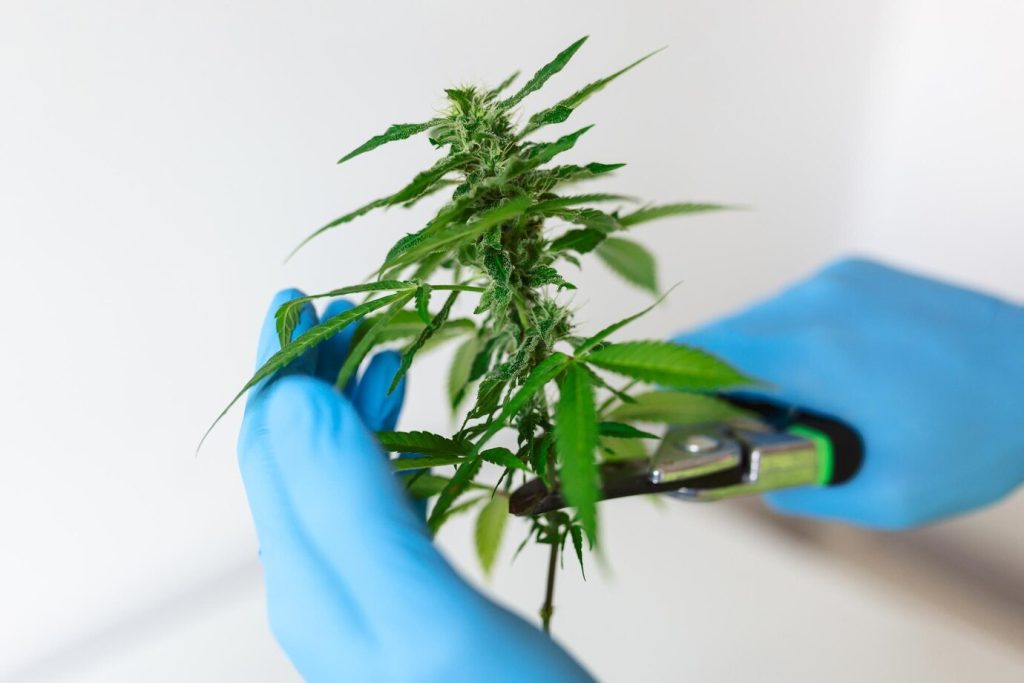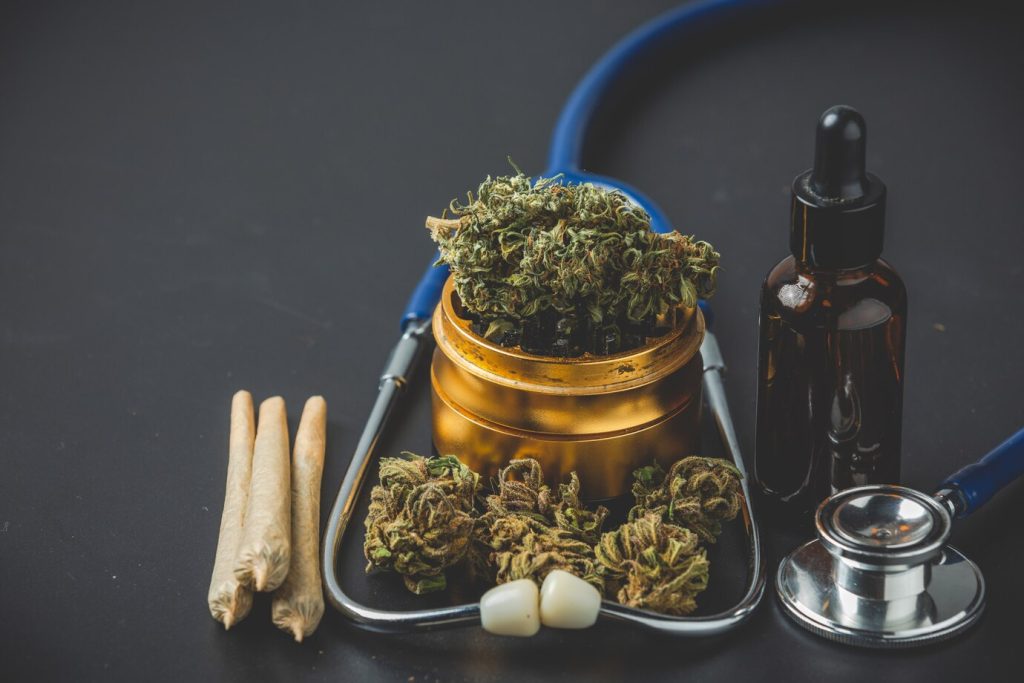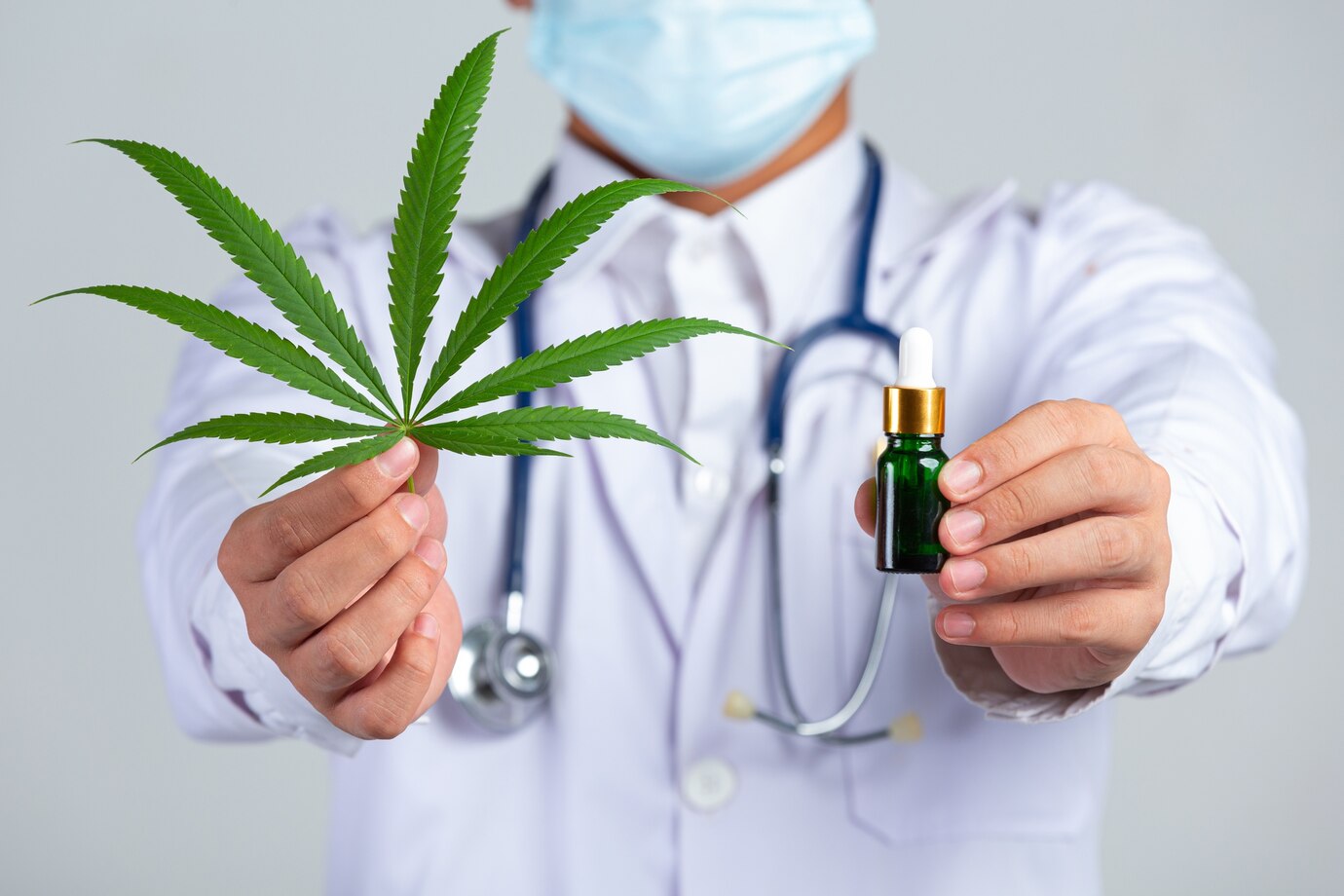5 Benefits Of Consulting With A Medical Marijuana Doctor
Medical marijuana has garnered much attention in recent years, offering a new avenue for health and wellness. However, the benefits of consulting a cannabis doctor are particularly noteworthy, especially in states like Oklahoma, where its use is legalized. Explore these benefits to ensure you get the most out of your first consultation.
Table of Contents
- Key Takeaways
- Benefit 1: Personalized Treatment Plans
- Benefit 2: Accurate Dosage Recommendations
- Benefit 3: Legal Compliance and Guidance
- Benefit 4: Safe and Effective Use of Medical Marijuana
- Benefit 5: Addressing Concerns and Providing Education
- Frequently Asked Questions (FAQs)
Key Takeaways
✔ Personalized treatment plans, guided by medical marijuana doctors, cater to individual needs, optimizing the effectiveness of medical marijuana therapy.
✔ Accurate dosing, under the guidance of medical marijuana doctors, ensures therapeutic efficacy while minimizing potential side effects and legal risks.
✔ Medical marijuana doctors offer vital support in navigating legal frameworks, ensuring patients stay compliant with local laws and regulations.
✔ Medical marijuana doctors educate patients about potential side effects, quality products, and responsible use, enhancing the safety and efficacy of treatment.
✔ Medical marijuana doctors dispel myths, provide credible information, and empower patients with knowledge to make informed decisions about their medical cannabis treatment.
Benefit 1: Personalized Treatment Plans
Personalized treatment plans offer a myriad of advantages, particularly in the context of medical marijuana therapy. In a study highlighted in the Journal of Cannabis Research, it was noted that patients often initiate the use of medical cannabis based on their own experiences rather than professional advice, underscoring the need for a medical marijuana doctor for treatment monitoring.
Tailoring to Individual Needs
- Precise Dosage: Medical marijuana doctors in Oklahoma leverage their expertise to determine the ideal dosage for each patient, factoring in variables such as age, weight, medical history, and the specific condition being treated.
- Strain Selection: Reputable clinics like EZMEDCARD can tailor treatments for patients. Tailoring treatment extends to choosing the right medical cannabis strain. Indica strains may be preferred for their relaxing effects, while sativa strains are chosen for their energizing properties based on the patient’s requirements.
- Route of Administration: Personalized plans consider the patient’s preferences and circumstances, allowing the selection of appropriate administration methods, such as smoking, vaporizing, or edibles.
- Potential Drug Interactions: Knowledgeable medical marijuana doctors also consider possible drug interactions to ensure the patient’s safety and efficacy of treatment.
- Adjustment and Optimization: The flexibility of personalized plans allows for ongoing adjustments and optimization based on the patient’s response to treatment. This adaptability ensures that the patient receives the most effective therapy over time.
Monitoring Progress
- Regular Consultations: Medical marijuana doctors are pivotal in monitoring and conducting regular follow-up appointments to assess the patient’s progress. These appointments allow for fine-tuning of treatment plans.
- Symptom Tracking: Patients are encouraged to keep detailed symptom diaries, which their medical marijuana doctor reviews. This tracking helps gauge the effectiveness of the treatment and make necessary modifications.
- Patient Education: Continuous education is a crucial component of monitoring. Medical marijuana doctors educate patients about their treatment, helping them understand its benefits, risks, and responsibilities.
- Long-Term Planning: Personalized plans encompass long-term considerations. Medical marijuana doctors work with patients to develop strategies for sustained health and well-being, considering potential changes in the patient’s condition or treatment goals.
Benefit 2: Accurate Dosage Recommendations

Accurate dosage recommendations in medical marijuana therapy are of paramount importance, and they are a cornerstone of safe and effective treatment. Ensuring patients receive the right amount of cannabis-based medicine can significantly impact their well-being and overall therapeutic outcomes.
Why Correct Dosage Matters
- Optimal Therapeutic Efficacy: One of the primary reasons for seeking medical marijuana treatment is to harness its therapeutic potential. Accurate dosing ensures that patients receive the right amount of cannabinoids, such as THC (tetrahydrocannabinol) and CBD (cannabidiol), to address their specific medical conditions effectively.
- Minimized Side Effects: An accurate dosage reduces the risk of adverse effects, such as anxiety, paranoia, or drowsiness, which can occur when consuming too much THC. Medical marijuana doctors in Oklahoma consider patients’ tolerance and sensitivity to THC, helping them avoid these uncomfortable experiences.
- Consistency in Treatment: For patients with chronic conditions, consistency in dosing is crucial. It ensures that the patient experiences a predictable level of relief over time, enhancing their quality of life and enabling them to manage their condition more effectively.
- Compliance with Legal Regulations: Medical marijuana is subject to strict legal regulations in many regions. Ensuring accurate dosing helps patients comply with these laws, reducing the risk of legal complications.
Avoiding Overconsumption
- Risk Reduction: Overconsumption of medical marijuana can lead to unpleasant and sometimes even dangerous side effects. Medical marijuana doctors play a pivotal role in helping patients avoid this risk by providing precise dosing recommendations.
- Patient Education: Trusted clinics like EZMEDCARD provide comprehensive resources for patients. Medical marijuana doctors educate patients about the importance of responsible consumption and understanding their tolerance levels. This empowers patients to make informed decisions about their treatment.
- Titration: Titration gradually increases the dosage until the desired therapeutic effect is achieved. Medical marijuana doctors guide patients through this process, closely monitoring their response to treatment and making adjustments as needed.
- Avoiding Dependency: Overconsumption can also lead to dependency issues. By helping patients establish controlled and effective dosing routines, medical marijuana doctors mitigate the risk of dependence and misuse.
Benefit 3: Legal Compliance and Guidance

Legal compliance is a critical aspect of the medical marijuana landscape, and it plays a vital role in patient care and protection. Medical marijuana doctors are instrumental in helping patients navigate the complex legal frameworks surrounding cannabis-based medicine.
Navigating Legal Frameworks
- State-by-State Variability: In the United States, medical marijuana laws vary significantly from state to state. This patchwork of regulations can be confusing and overwhelming for patients. Medical marijuana doctors in Oklahoma are well-versed in the specific laws of their jurisdiction, ensuring that patients receive accurate information tailored to their location.
- Eligibility Assessment: Medical marijuana doctors are responsible for assessing a patient’s eligibility for medical cannabis. They understand the qualifying conditions outlined in their state’s laws and can determine whether a patient meets the criteria for medical marijuana treatment.
- Recommendation Letters: In many jurisdictions, patients require a recommendation letter from a medical marijuana doctor to obtain a medical marijuana card or access dispensaries. These letters serve as a legal requirement and must adhere to specific guidelines.
- Dosage and Possession Limits: Legal frameworks often dictate dosage and possession limits for medical marijuana patients. Medical marijuana doctors ensure patients know and adhere to these limits to comply with the law.
- Documentation: Detailed medical records and documentation are crucial for legal compliance. Medical marijuana doctors maintain accurate records of patient evaluations, recommendations, and treatment plans to provide legal protection for patients and themselves.
Ensuring Patient Protection
- Safety and Quality Control: One of the primary objectives of medical marijuana regulations is to ensure the safety and quality of cannabis-based products. Medical marijuana doctors guide patients in selecting reputable dispensaries and products that adhere to strict quality control standards.
- Avoiding Legal Consequences: Non-compliance with medical marijuana laws can lead to legal consequences, including fines and even imprisonment. Medical marijuana doctors educate patients about the potential legal pitfalls and help them stay on the right side of the law.
- Patient Privacy: Clinics like EZMEDCARD ensure the utmost importance regarding security and privacy. Protecting patient privacy is paramount. Medical marijuana doctors adhere to strict confidentiality standards, safeguarding patients’ sensitive medical information and ensuring it is not disclosed to unauthorized parties.
- Informed Decision-Making: Patients must make informed decisions about their medical marijuana treatment. Medical marijuana doctors provide comprehensive information about cannabis-based medicine’s potential risks and benefits, empowering patients to make choices that align with their medical needs and legal obligations.
- Legal Updates: Medical marijuana laws are subject to change and evolution. Medical marijuana doctors stay up-to-date with legal developments, ensuring that their patients receive the most current and accurate information regarding their treatment options.
Benefit 4: Safe and Effective Use of Medical Marijuana

The safe and effective use of medical marijuana is a paramount concern for patients and healthcare providers. Medical marijuana doctors in Oklahoma are crucial in guiding patients toward this goal. An article from the Centers for Disease Control and Prevention (CDC) provides a comprehensive overview of marijuana, discussing its effects and its legal status in the U.S.
Identifying Quality Products
- Product Variability: The market for medical marijuana products is vast and varied, offering a range of strains, formulations, and delivery methods. Medical marijuana doctors in Oklahoma assist patients in discerning the most appropriate products for their specific medical conditions and individual needs.
- Reputable Dispensaries: Medical marijuana doctors often know about reputable dispensaries and can recommend sources known for their quality and compliance with safety standards. This guidance ensures that patients obtain their medicine from trusted sources.
- Lab Testing: Quality assurance is critical in medical marijuana therapy. Medical marijuana doctors educate patients about the importance of choosing products that have undergone rigorous lab testing for potency, purity, and safety. This ensures that patients receive consistent and reliable treatment.
- Dosage Accuracy: Ensuring the accuracy of dosage is crucial for therapeutic effectiveness. Medical marijuana doctors help patients select products with reliable dosing information, reducing the risk of overconsumption or ineffective treatment.
- Avoiding Contaminants: Contaminants such as pesticides, heavy metals, and molds can pose health risks. Medical marijuana doctors educate patients about the importance of choosing products tested and cleared of contaminants.
Dealing With Potential Side Effects
- Patient Safety: Patient safety is paramount in medical marijuana therapy. Medical marijuana doctors inform patients about potential side effects associated with cannabis-based medicine, ensuring they are prepared and respond appropriately.
- Individual Variation: Side effects can vary from person to person. Medical marijuana doctors consider factors such as tolerance, sensitivity, and medical history when discussing potential side effects with patients.
- Short-Term Effects: Patients are educated about short-term side effects, including dry mouth, red eyes, increased heart rate, or altered perception. Understanding these effects helps patients distinguish between expected and concerning symptoms.
- Long-Term Effects: In some cases, long-term use of medical marijuana may be associated with certain risks, such as cognitive effects or dependence. Medical marijuana doctors guide minimizing these risks and offer alternatives when appropriate.
- Drug Interactions: Medical marijuana doctors educate patients about potential interactions between cannabis-based medicine and other medications they may be taking. This information is crucial for patient safety and effective treatment.
Benefit 5: Addressing Concerns and Providing Education
Addressing concerns and providing education are integral components of responsible patient care. Medical marijuana doctors play a pivotal role in dispelling myths and offering credible information to patients, helping them make informed decisions about their treatment.
Dispelling Myths
- Misconceptions About Medical Marijuana: Medical marijuana is rife with misconceptions and myths. Medical marijuana doctors are well-equipped to address and debunk these misconceptions, ensuring patients have accurate information.
- Safety Concerns: Concerns about the safety of medical marijuana are prevalent. Medical marijuana doctors can educate patients about the rigorous testing and quality control standards that reputable products adhere to, dispelling doubts about safety.
- Addiction and Dependency: A common myth is that medical marijuana is highly addictive. Medical marijuana doctors provide evidence-based information on the potential for dependence and help patients understand the difference between medical use and misuse.
- Gateway Drug Theory: The notion that marijuana is a gateway drug leading to the use of more harmful substances is a persistent myth. Medical marijuana doctors can explain that no conclusive scientific evidence supports this theory.
- Lack of Efficacy: Some individuals may doubt the effectiveness of medical marijuana. Medical marijuana doctors can share research and patient success stories to demonstrate its therapeutic potential.
Providing Credible Information
- Scientific Evidence: Medical marijuana doctors base their recommendations on scientific evidence and clinical studies. They inform patients about the research supporting the use of cannabis for various medical conditions, reinforcing the credibility of the treatment. For a deeper dive into the state of the science surrounding medical marijuana, you might explore Harvard Health’s comprehensive overview of medical marijuana.
- Side Effect Management: Credible information includes discussing potential side effects and their management. Medical marijuana doctors educate patients on mitigating side effects enhancing the overall treatment experience.
- Patient Rights: Patients have rights and protections under medical marijuana laws. Medical marijuana doctors in Oklahoma inform patients of their rights and help them understand how to advocate for their healthcare needs within the legal framework.
Frequently Asked Questions (FAQs)
What is medical marijuana, and how does it differ from recreational marijuana?
Medical marijuana is cannabis used for medical purposes, prescribed by a healthcare professional. It differs from recreational marijuana in that it is used to treat specific medical conditions and is subject to different legal regulations.
Can medical marijuana help with chronic pain?
Yes, medical marijuana is effective in managing chronic pain, especially in conditions like neuropathy, arthritis, and multiple sclerosis. Medical marijuana can provide pain relief without the potential risks associated with opioids.
How do I obtain medical marijuana, and do I need a medical marijuana doctor’s recommendation?
To obtain medical marijuana, you typically need to consult a medical marijuana doctor who can evaluate your eligibility based on your medical condition. If recommended, you’ll receive a medical marijuana card, allowing you to purchase medical cannabis from authorized dispensaries.
What medical conditions can be treated with medical marijuana?
Medical marijuana can be used to treat a wide range of conditions, including chronic pain, epilepsy, cancer, PTSD, glaucoma, and more. The specific conditions eligible for treatment vary by state or region.
Is medical marijuana safe, and are there any side effects?
Medical marijuana can be safe when used under the guidance of a medical marijuana doctor. However, like any medication, it may have side effects, including dry mouth, dizziness, and, in some cases, anxiety or paranoia. Medical marijuana doctors educate patients about potential side effects and how to manage them.
Can I drive or operate heavy machinery while using medical marijuana?
Driving or operating machinery while under the influence of medical marijuana can be dangerous and is typically discouraged. It impairs cognitive and motor skills. Always follow local laws and regulations regarding cannabis use and driving.
How do I find a qualified medical marijuana doctor?
You can find a qualified medical marijuana doctor by asking for recommendations from your primary care physician, searching online directories, or contacting local medical marijuana dispensaries for referrals. Ensure the doctor is licensed and knowledgeable about medical marijuana.
Can I grow my medical marijuana at home?
Whether you can grow your medical marijuana at home varies by jurisdiction. In some states, it is allowed for registered patients, while in others, it is strictly regulated or prohibited. Check your local laws to determine if home cultivation is permitted.
Experience the Future of Medical Marijuana Care with EZMEDCARD
Take control of your medical marijuana treatment with EZMEDCARD today. Join the growing community of patients enjoying the benefits of informed, legal, and effective medical marijuana care. Don’t miss out—get started now and elevate your healthcare experience. Contact us to learn more about our services.
FAQ
1. What are the benefits of medical marijuana research?
Medical marijuana research holds immense value for understanding the potential benefits and risks of this complex plant. Here's why research is crucial:
- Evidence-Based Treatment: Research helps determine the effectiveness of medical marijuana for specific conditions, allowing healthcare professionals to make informed treatment recommendations.
- Dosage and Strain Optimization: Studies can help identify the most effective dosages and strains for various conditions, maximizing therapeutic benefits while minimizing side effects.
- Safety Assessment: Research helps identify and mitigate potential risks associated with medical marijuana use, ensuring patient safety.
- Long-Term Effects: Longitudinal studies can shed light on the long-term effects of medical marijuana use, which is crucial for responsible treatment plans.
2. What are 3 medical benefits of marijuana?
While research is ongoing, some promising medical benefits of marijuana include:
- Pain Management: Studies suggest marijuana can help manage chronic pain by reducing inflammation and altering pain perception.
- Reduced Nausea and Vomiting: Medical marijuana has shown effectiveness in alleviating nausea and vomiting, particularly for patients undergoing chemotherapy.
- Seizure Control: Certain strains high in CBD may offer benefits in reducing seizure frequency and severity for some epilepsy patients.
3. What are the benefits of medical marijuana according to the Mayo Clinic?
The Mayo Clinic acknowledges that medical marijuana shows promise for certain conditions. They highlight its potential benefits in managing:
- Chronic pain: Similar to point #2 above, medical marijuana may help manage chronic pain conditions like arthritis and neuropathy.
- Muscle spasticity: Studies suggest it can help alleviate muscle spasms associated with multiple sclerosis and other conditions.
- Glaucoma: While not a cure, some research suggests marijuana might help reduce intraocular pressure, a risk factor for glaucoma.
4. What are the benefits of medical marijuana on mental health?
The impact of medical marijuana on mental health is a complex and ongoing area of research. While some studies suggest potential benefits for anxiety and PTSD, more research is needed. There are also concerns about potential negative effects on mental health, particularly for adolescents. It's crucial to consult with a healthcare professional to discuss the potential risks and benefits in the context of your specific mental health condition.
5. Are there any side effects associated with using medical marijuana?
Yes, as mentioned previously, there can be side effects associated with medical marijuana use. These can vary depending on the strain, dosage, and individual factors. Some potential side effects include:
- Drowsiness and impaired coordination: THC, the psychoactive component in marijuana, can cause drowsiness and fatigue, potentially impacting daily activities.
- Changes in mood or behavior: While some studies suggest marijuana may help with anxiety, in some individuals it might trigger negative mood swings or even paranoia.
- Digestive problems: Upset stomach, diarrhea, or changes in appetite are possible side effects, especially when consuming edibles.
- Cognitive impairment: THC use can temporarily impair memory, focus, and reaction time.
It's important to discuss these potential side effects with your doctor and monitor your response to medical marijuana carefully. They can help you adjust the dosage or strain type to minimize the risk of side effects while maximizing potential benefits for your condition.




